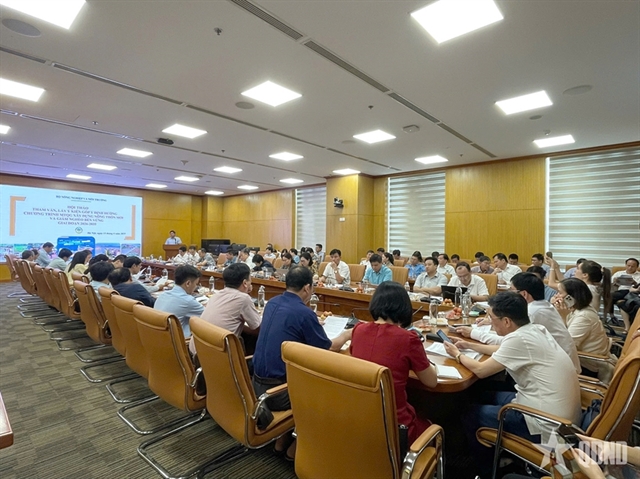 Society
Society

 |
| A consultation workshop on Friday in Hà Nội gathers feedback on the orientation of the National Target Programme for New Rural Development and Sustainable Poverty Reduction for 2026–2035. VNS Photo Tố Như |
HÀ NỘI — The Ministry of Agriculture and Environment has proposed merging the National Target Programme on New Rural Development with the Sustainable Poverty Reduction Programme to form a unified National Target Programme for New Rural Development and Sustainable Poverty Reduction for the 2026–2035 period.
In practice, continuing to implement these two programmes separately is no longer suitable in the new context, Deputy Minister of Agriculture and Environment Trần Thanh Nam said at a consultation workshop on June 13 in Hà Nội.
“The current National Target Programme on New Rural Development has a wide scope and can fully integrate the contents of sustainable poverty reduction effectively,” Nam said.
“This is a scientific and rational approach, aligning with the inclusive development goal of leaving no one behind, in accordance with the consistent directives of the Party, the State and the Government,” he added.
According to the ministry’s report, as of May, 6,058 out of 7,696 communes nationwide (78.7 per cent) had met new rural development (NRD) standards, of which 2,446 communes achieved advanced NRD standards and 655 communes reached model NRD standards.
There are 24 centrally governed provinces and cities with 100 per cent of communes meeting NRD standards, an increase of ten localities since late 2021.
The overall goal for 2026–2030 is to build modern, comprehensive and sustainable new rural areas that are resilient to climate change.
This includes developing synchronised socio-economic infrastructure suitable for green and circular development, promoting rural economies based on science, technology, digital transformation and innovation, increasing income and quality of life and improving access to essential services in rural areas.
The aim is to gradually narrow the gap with urban living standards.
The programme will be divided into two phases.
The first phase from 2026–2035 will focus on completing the current programme, with the goal of creating comprehensively developed rural areas with modern socio-economic infrastructure, while the 2036–2045 phase aims to build “modern rural areas with living conditions approaching urban levels, environmentally green, clean and culturally rich, with guaranteed national defence, security and social order”.
At the workshop, experts recommended boosting rural economic development via the green and digital transformation to create jobs and rapidly increase local income.
They also called for decisive environmental protection measures and improved climate resilience. Infrastructure and rural services should be upgraded to meet economic and lifestyle demands linked to urbanisation.
Furthermore, training and education programmes should be expanded, mobilising experts, scientists and entrepreneurs to rural areas to transfer knowledge and technology and to create new livelihoods tailored to each locality. _ VNS




